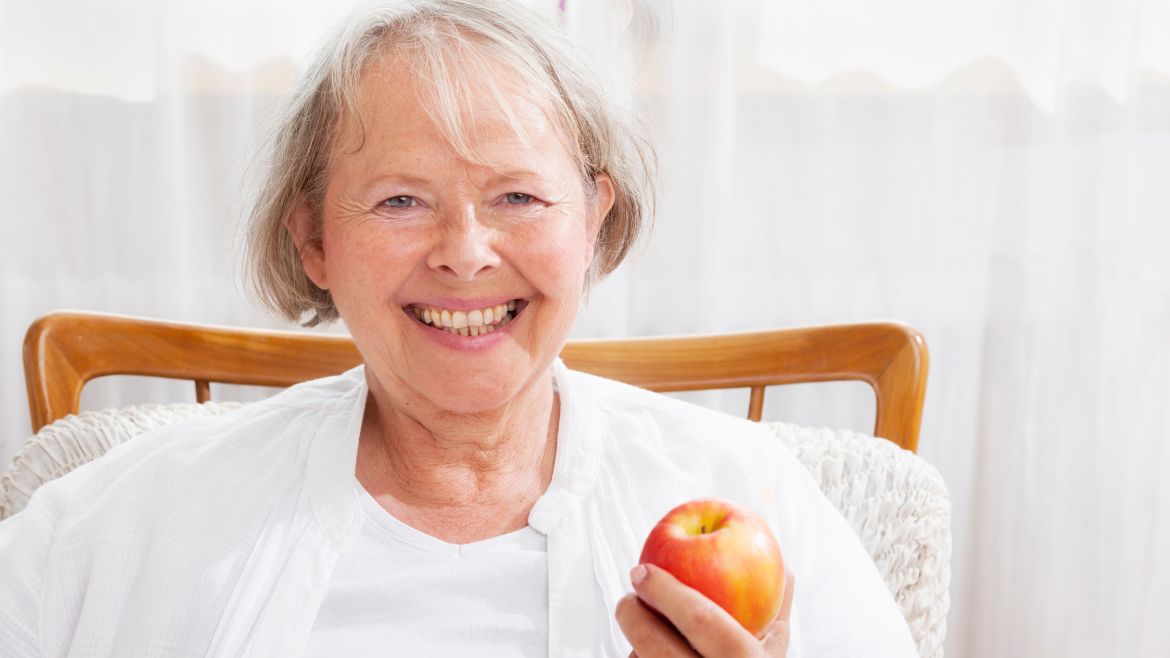Good nutrition is important at every stage of life. But for seniors, good nutrition begins to look a little different. As their metabolism slows, they need fewer calories and more of certain nutrients, such as protein. It becomes more important than ever to choose foods that are good quality and high in nutritional value. Good nutrition in seniors can also help prevent some diseases, such as osteoporosis, high blood pressure, heart disease, type 2 diabetes, and certain cancers.
Good Nutrition Tips for Seniors
Eat foods that contain lots of nutrients. Fruits and vegetables contain many essential vitamins and minerals needed daily. Whole grains like oatmeal, whole-wheat bread, and brown rice contain essential carbohydrates and fiber. Fat-free or low-fat milk and cheese, soy, or rice milk often has added vitamin D, calcium, and protein. Other good sources of protein include seafood, lean meats, poultry, and eggs, which help the body create new cells. Beans, nuts, and seeds are great sources of healthy fats.
Avoid empty calories. Lessen highly-processed foods such as chips, candy, baked goods, soda, and alcohol. These are usually low in nutritional value and high in calories.
Stay hydrated. The sense of thirst may be lost to some people as they age, so it is important to make sure a senior is drinking enough water. It might even be more important for them to stay hydrated if they are taking certain medicines.
Get regular exercise. Seniors who are losing their appetite may feel hungry if they exercise, so encourage daily light exercise.
How to Make Good Nutrition Easier
Nutrition doesn’t need to be complicated. Follow these tips to make things easier, but consult with their doctor to ensure you are meeting their specific dietary needs.
Balance their plates. Fill half the plate with veggies and fruits and split the other half between whole grains and lean protein.
Change it up. Instead of eating the same thing every day, switching things up will keep things interesting. Have a variety of options with different fruits, veggies, and proteins at every meal, or at least on different days.
Color is key. When a plate is bursting with bright colors and lots of veggies, it’s more likely to be packed with nutrients.
Help with Nutrition at Senior Living Communities
Seniors can struggle to maintain good nutrition on their own. Making and eating healthy, balanced meals requires effort that seniors may not be able to put in due to mental, physical, or emotional issues. If your loved one is having difficulties eating healthy, senior living communities can take away that burden. The dietary team at senior living communities do the hard work for seniors with specialized meal plans.
At Beaumont Health Care Center in Beaumont, Texas, we have registered dietitians that provide customized recommendations and interventions based on current evidence-based practices. Give us a call today at (409) 842-2228 to learn more.



